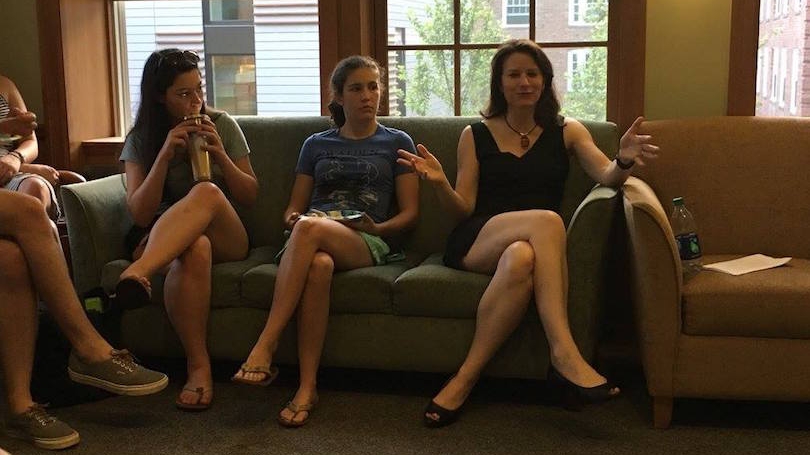
- Public Policy
- Leadership
- Funding
- News & Events
- About the Center
Back to Top Nav
Back to Top Nav
Back to Top Nav
Back to Top Nav
A few weeks ago, The Thought Project was joined by Professor Gaposchkin for a dinner discussion on the importance of a liberal arts education. As was rightly noted, most of us in the room already were already convinced of its critical role. Nevertheless, it was a welcome opportunity to pause and reflect on bigger questions that normally escape us during busy terms. At the dinner’s conclusion, I was left with perhaps more questions than I had at its beginning, but still felt as if I had progressed just by welcoming these new questions for contemplation.
Our discussion was interspersed with facts (like that over half of Dartmouth students major in a field in which they had not declared interest upon matriculation), anecdotes (particularly regarding conversations with employers), and advice. After some time, the conversation seemed to settle on the implications of choosing the “wrong” major. This major is one by which the student is not intellectually stimulated, but instead one the student uses as a channel to a desired career. At Dartmouth, this major is most often economics (with the corresponding career being one in finance). With only one economics major in the room, we were clearly hearing a slightly biased view, but one that nevertheless has merit.
This conversation eventually triggered a round of personal introspection about my own choice to pursue a neuroscience major, bringing to light those bigger questions in the context of my own academic journey:
What does it mean to enjoy a major?
Am I choosing this major because I feel a sense of duty?
Am I properly taking advantage of this opportunity that is a liberal arts education?
As the night went on, the questions did as well, eventually spiraling into ones like…
Why am I still thinking about this and not about my homework for tomorrow?
Can’t I just get through classes this term and reevaluate things at home during break?
Eventually, as time went on and as my search history became filled with visits to the Dartmouth Course Catalog, I returned to studying but resolved to return to the matter later…which I have, on almost a daily basis. Although I have not made any concrete decisions, I have allowed myself to experience this sense of uncertainty that I normally force away because it seems too threatening. I eventually experienced two realizations. The first is that there will be no convenient time to face these questions – there will always be an approaching midterm or paper or deadline. And when on break, we don’t have our friends, deans, and advisors to approach with questions. The second is that if we do not face these questions now, soon it will be too late. We are halfway done with our Dartmouth careers, so while we still have the chance to change majors and have freedom to explore, time moving way too fast to keep pushing off this introspection. While sophomore summer is often a time for relaxation in academic and extracurricular commitments, we should be careful about allowing this relaxation to extend to spheres of thought concerned with these important matters, just in case we make decisions we’ll regret a few years from now.
- Submitted by Sumita Strander '18, attendee for the Food for Thought dinner funded by a Rockefeller Mini-Grant
The Rockefeller Center's Mini-Grants program funds registration fees for students attending conferences, as well as the costs of bringing guest speakers to Dartmouth. The views and opinions expressed here are the author’s own and do not necessarily represent the views and opinions of the Rockefeller Center or constitute an endorsement by the Center.